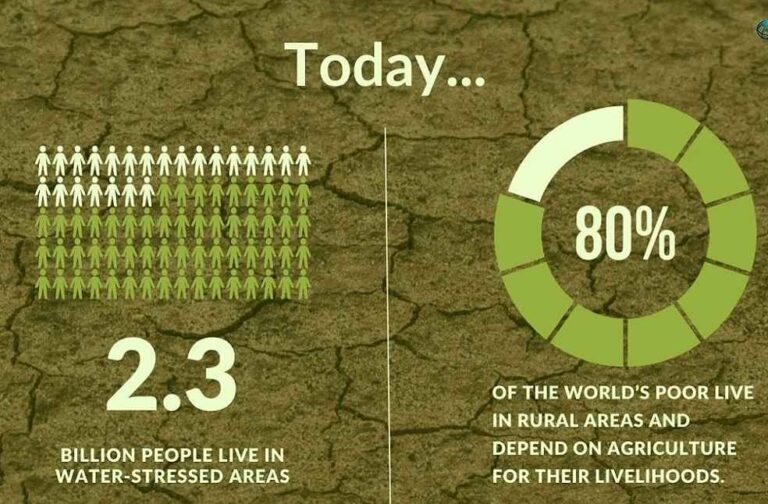Washington: Many of the world’s poor are farmers, and climate change has made farming increasingly difficult due to drought and soaring heat. The World Bank emphasized the need for climate-resilient irrigation to help feed the planet, strengthen livelihoods, grow economies, reduce greenhouse gas emissions, and build resilience to climate shocks.
Farmers like Ami Ndiaye from Senegal and Ercan Akın from Türkiye have seen their lives transformed through improved access to water. Ndiaye can now cultivate year-round, and Akın has increased crop yields and prosperity. Climate-resilient irrigation helps mitigate water stress, increase agricultural productivity, enable crop diversification, and lower food prices, potentially feeding 1.4 billion more people.
In Vietnam’s Mekong Delta, the Vietnam Sustainable Agriculture Transformation Project is reducing water use and methane emissions while boosting rice yields. Le Dong Phuong, a rice farmer, has increased her crop yield and income, providing better for her family. The project, supported by the World Bank, aims to scale up sustainable practices to reduce carbon emissions significantly by 2030.
The Sahel region, facing drought and conflict, is benefiting from the Sahel Irrigation Initiative Support Project. Funded by the World Bank’s International Development Association, the project is improving irrigation systems and supporting 390,000 farmers. Farmers like Fattah Hassan Dubaal in Chad and Maguete Faye in Senegal have seen dramatic increases in crop yields and improvements in their livelihoods.
In Türkiye, the Türkiye Irrigation Modernisation Project is bringing modern irrigation solutions to small farmers, helping them achieve more yield with less water. Farmers like Züleyha Metinoğlu in Konya province have seen their lives transformed, with increased income and the ability to send their children to university.
In Indonesia, the Strategic Irrigation Modernisation and Urgent Rehabilitation Project has benefited nearly 350,000 farmers by improving irrigation systems and introducing climate-smart practices. Farmers like Sukeni in Jatimulya are now reaping fuller and more profitable crops, allowing them to save for their children’s education.
The World Bank has invested US$7 billion in irrigation projects over the last two decades, advancing sustainable and climate-resilient irrigation. This approach equips farmers to produce more abundant harvests while preserving water, conserving land, and improving resilience to climate shocks.
MOST READ | Bottled water contains toxic nanoplastics; Study



